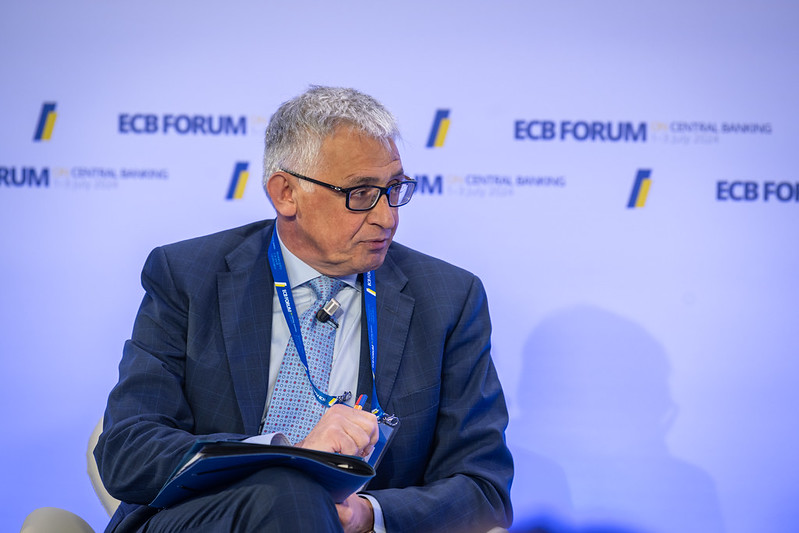By David Barwick – TALLINN (Econostream) – European Central Bank Executive Board member Piero Cipollone on Monday said that the digital euro would be a key tool to preserve Europeans’ freedom of choice, safeguard the bloc’s autonomy and strengthen its resilience in the face of global uncertainty.
Delivering the keynote at a conference on the digital euro hosted by Eesti Pank, Cipollone warned that Europe’s heavy reliance on non-European payment providers exposed it to risks. Two-thirds of card transactions in the euro area are processed by international schemes, and in 13 of the 20 euro area countries, in-store electronic payments depend entirely on them, he noted.
“This excessive dependency not only hampers competition, resulting in higher fees for merchants that translate into higher prices for consumers,” he said. “It also calls our sovereignty into question by threatening our ability to act independently in one of the areas most critical for the functioning of our economy: money.”
The introduction of a digital euro would counter this by offering Europeans a universal means of digital payment backed by the central bank, ensuring that sovereign money remained available even as the use of cash continued to decline, Cipollone said.
The ECB’s projections show that cash’s share of point-of-sale transactions in the euro area dropped from 72% in 2019 to 52% in 2024 in volume terms, with an even steeper decline in online transactions.
The digital euro would also empower European payment companies by providing common infrastructure and open standards, allowing them to scale up across the continent and build innovative services atop a legal-tender platform.
“Tomorrow, the digital euro, thanks to its wide acceptance, will open borders for these solutions, strengthen competition, foster innovation and ensure Europe can shape the future of European payments on its own terms,” he said.
Cipollone stressed that resilience was another core design principle. The ECB’s plan foresees infrastructure spread across at least three regions, a dedicated ECB app allowing users to switch providers in the event of outages, and an offline function enabling payments without internet or mobile signal.
“Even if the internet is down, ATMs are out of order or you have no phone signal, you will still be able to pay with digital euro,” he said.
At the same time, the project is about more than technology, Cipollone argued. “The digital euro is not just a means of payment; it is also a political statement concerning the sovereignty of Europe,” he said, quoting ECB President Christine Lagarde.
The success of the initiative would require the joint efforts of the ECB, national central banks, EU institutions and private stakeholders, he said.
“Through close dialogue and active engagement at events like today’s, we can shape a digital euro that truly simplifies everyday payments for Europeans and protects their freedom, autonomy and security,” he said.

